Real average and aggregate wages declined in October October’s consumer inflation reading came in at a surprisingly high +0.4%, which as shown in red in the graph below, was one of the 3 highest in the past two years. Meanwhile average hourly earnings increased less than +0.2% – the second lowest reading in the past two years, shown in blue: As a result, real average hourly earnings decreased -0.2% last month, the worst reading since late 2017: In a longer term perspective, this means that real wages declined to 97.6% of their all time high in January 1973: On a YoY basis, real average wages remained up +1.7%, as they have been since June, and still below their recent peak growth of 1.9% YoY in February: Aggregate hours and payrolls have improved
Topics:
NewDealdemocrat considers the following as important: Taxes/regulation, US/Global Economics
This could be interesting, too:
Joel Eissenberg writes How Tesla makes money
Angry Bear writes True pricing: effects on competition
Angry Bear writes The paradox of economic competition
Angry Bear writes USMAC Exempts Certain Items Coming out of Mexico and Canada
Real average and aggregate wages declined in October
October’s consumer inflation reading came in at a surprisingly high +0.4%, which as shown in red in the graph below, was one of the 3 highest in the past two years. Meanwhile average hourly earnings increased less than +0.2% – the second lowest reading in the past two years, shown in blue:
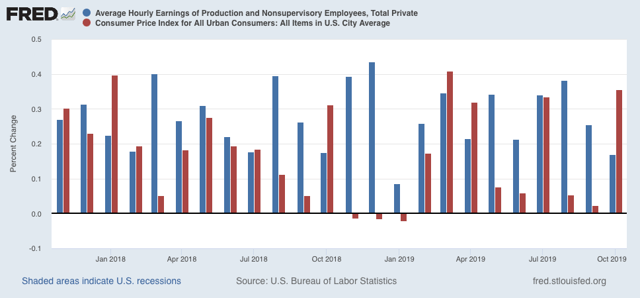
As a result, real average hourly earnings decreased -0.2% last month, the worst reading since late 2017:
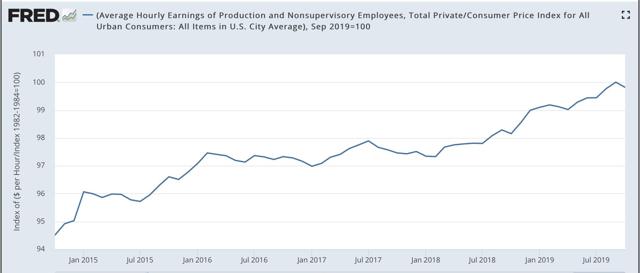
In a longer term perspective, this means that real wages declined to 97.6% of their all time high in January 1973:
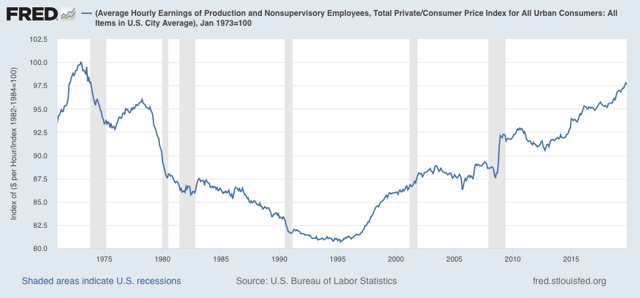
On a YoY basis, real average wages remained up +1.7%, as they have been since June, and still below their recent peak growth of 1.9% YoY in February:
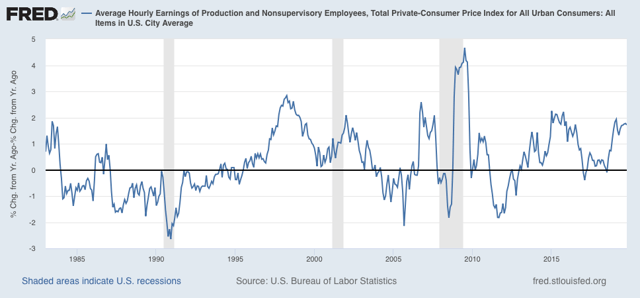
Aggregate hours and payrolls have improved significantly since July, so even though they declined -0.1% in October, real aggregate wages – the total amount of real pay taken home by the middle and working classes – are up 30.1% from their October 2009 trough at the beginning of this expansion:
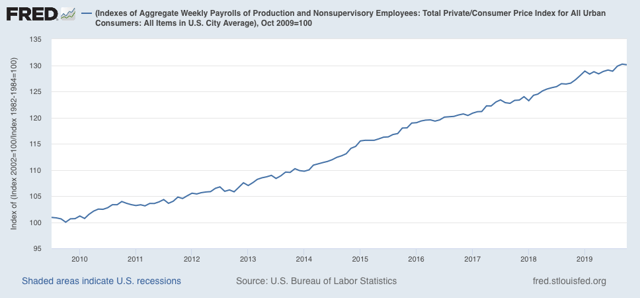
For total wage growth, this expansion remains in third place, behind the 1960s and 1990s, among all post-World War 2 expansions; while the *pace* of wage growth has been the slowest except for the 2000s expansion.
